Pro-Iranian forces push to overthrow Iraqi government
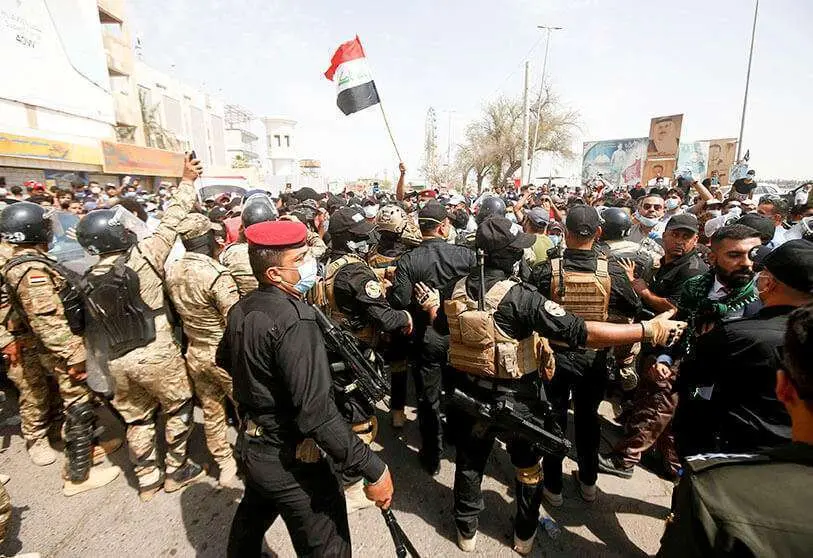
It took Iraq more than six months to form a new government after the resignation of Adel Abdul Mahdi at the end of November 2019. This difficult task was complicated by the outbreak of demonstrations in the country against foreign interference, both from Iran and the United States, against the deteriorating economic situation and against economic corruption, which left hundreds of people dead and detained. To deal with this chaotic scenario, aggravated by the outbreak of the coronavirus pandemic, President Barham Saleh entrusted the former director of the Iraqi Intelligence Service (IIS), Mustafa al-Kazemi, with the formation of an executive capable of dealing with social discontent and pulling the country out of the abyss it had plunged into.
Now, a new challenge has been added that threatens to overthrow the government: the emergence of anti-Kadhimi forces, which "are working to put pressure on the executive in parliament and in the streets", as explained by The Arab Weekly. These forces "belong to Iran's close allies in Iraq," they say in the publication.
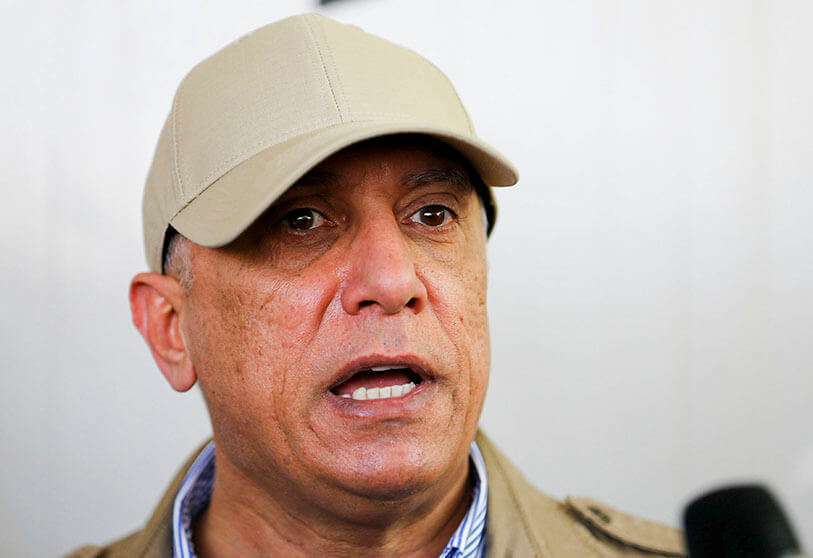
This new movement of the pro-Iranian allies in the country represents an important turn in their political strategy, since it is worth remembering, at this point, that initially Al-Kazemi received the support of the pro-Iranian factions and the tacit consent of Teheran, as the analyst Albert Vidal revealed at the time. However, these groups began to exert pressure as soon as he was appointed Prime Minister, since they wanted the country's key ministries, such as Defence, Interior, Finance and Foreign Affairs, to be occupied by his supporters.
But so far, the Iraqi head of government continues to have the backing of two important Shiite blocs close to Iran, namely the one led by the cleric Muqtada al-Sadr, who won the 2018 elections with the 'Sairun' ('Marchemos' in Spanish) coalition, and the one led by Ammar al-Hakim, head of the National Movement of Wisdom (Al-Hikma). The pro-Iranian forces are therefore launching new strategies to get both Al-Sadr and Al-Hakim to join their ranks, something that still seems quite complicated.
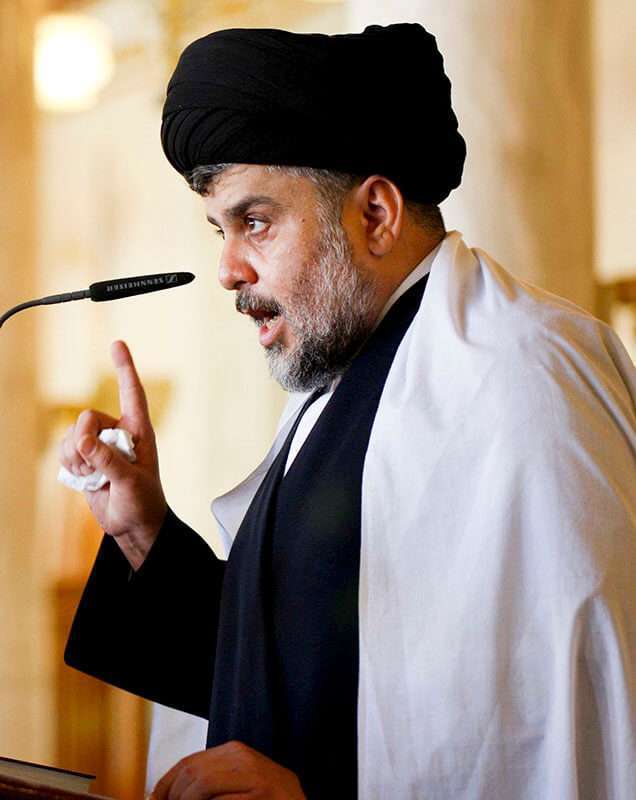
To this end, "they seem to have decided to experiment with a mixture of different currents in the popular movements that could end up tilting the positions of other political forces towards their project," they say from The Arab Weekly. This means that they are trying to combine the protesters from the October protests against the political and economic system in general with the protesters from the more recent protests, who are criticising the government for approving the new financial reform, which puts an end to the privileges that large segments of Iraqi society have benefited from over the last 15 years.
"The pro-Iranian Shiite parties hope that the street protests can attract Muqtada al-Sadr to join their ranks, as the latter's supporters seem to enjoy a good confrontation with the riot police from time to time. If the plot succeeds, many political forces will follow his example and abandon Kadhimi. The latter, aware of the plot, has been moving on all fronts to abort this plan," they write in the publication.
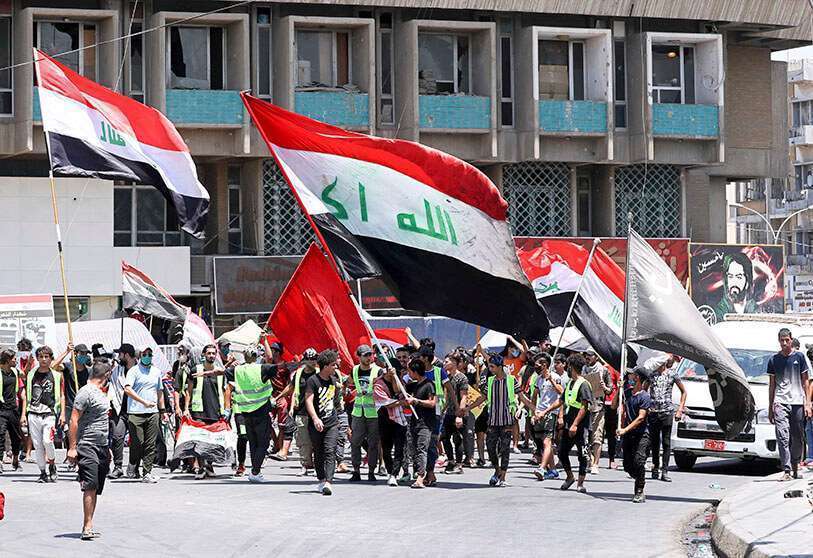
In addition, the groups that are instigating the protests are also charging against the almost irreversible deterioration of the country's electricity sector, which is causing hours of blackouts throughout the country every day. "A dilapidated network, older than wars, sieges and quotas, consumed by suburbia and abuse; a drain on $12 billion in annual government support. Torn apart in 1991 by the coalition, terrorist bombs and Daesh. With these words, the former Minister of Electricity at that time, Luay Alkateeb, described the Iraqi electricity network last April, as analyst Nawar Alrikabi states in his work entitled "Terrorism, Corruption and Politics Leave Iraq Without Power".
In order to prevent the deplorable state of electricity in Iraq from being used against it - which would be logical - by pro-Iraqi factions, the Prime Minister has undertaken a series of measures aimed at re-establishing supply, such as the establishment of local electricity generation stations in the private sector that sell electricity directly to consumers. It has also inaugurated a number of electricity projects in Kerbala, in the centre of the country, in the last week and has ordered the Ministry of Oil to "provide fuel free of charge to the owners of private electricity generators, in exchange for lower electricity prices and longer hours of supply".
However, this does not seem to be enough to stop the social unrest. "The strategy of Iran's allies to focus on igniting popular anger in Baghdad is specifically aimed at keeping the prime minister busy with the protests and consequently diverting his attention and efforts from pursuing Shiite militias involved in robbery, extortion, kidnapping, arms and drug smuggling and participation in armed conflicts abroad," they have pointed out since the publication, which undoubtedly brings further instability to the country and threatens to shake the foundations of the government.
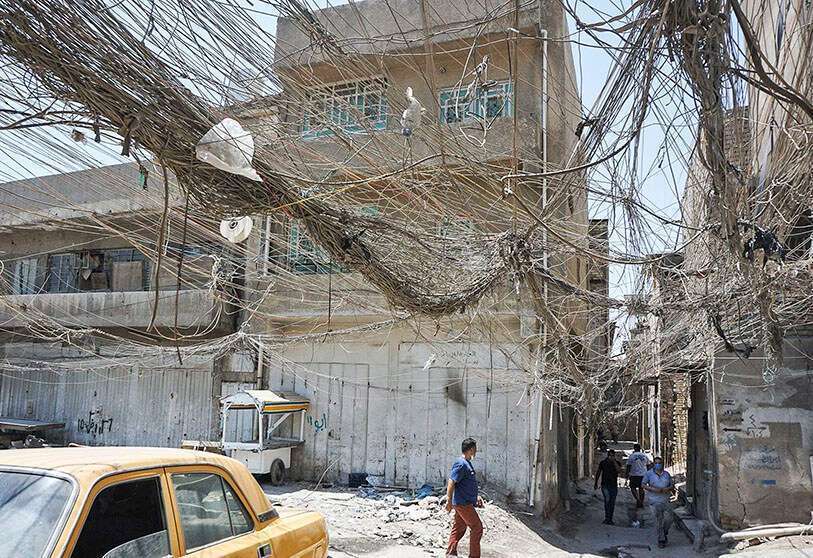
Anti-executive forces are also critical of his plans to "build a future partnership with the United States", which have begun to develop following a first round of dialogue last month. Before the arrival of Al-Kazemi to power, the interim government and the parliament, along with practically the entire population, were determined to expel the American troops from Iraq, especially after the attack launched on January 3 by the Pentagon against the Iranian general Qassem Soleimani and the vice president of the People's Mobilization Forces (PMF), Abu Mahdi al-Muhandis on Iraqi soil, which took the lives of both. The Iraqis rejected then - and still reject now - that their country has become the favorite battleground for Tehran and Washington.
But Al-Kadhimi is more in favor of seeking a beneficial agreement with the U.S. than breaking relations directly with the superpower, and also of reducing relations with the Islamic Republic. In the latter case, for example, he has ruled that Iranian citizens who want to travel to Iraq must have a visa and has refused to meet with the new commander of the Iranian Quds forces and Soleimani's successor, Esmail Ghaani. He has also dismissed Tehran-affiliated national security adviser Faleh Al-Fayyad. On the progress in the relationship with Washington, the U.S. military is now optimistic that it will be able to stay in Iraqi territory.
In fact, this very Tuesday, the main US military commander in the Middle East, General Kenneth McKenzie, travelled to Baghdad to meet with Al-Kadhimi, to thank him for the latest measures that the Iraqi government has taken against the pro-Iranian militias, which have been blamed for numerous deadly attacks against US forces deployed in Iraq. "The close relationship between the US and the Iraqi Army not only defeated the Daesh caliphate in Iraq, but is key to ensuring its lasting defeat. This partnership is also fundamental to the continued development of the Iraqi Army so that it can defend itself from Iran. It is important that the Iraqi government continue to reject Iranian-backed militias," the senior US military official said. These statements have, of course, heated up the mood of the factions affiliated with Tehran.








